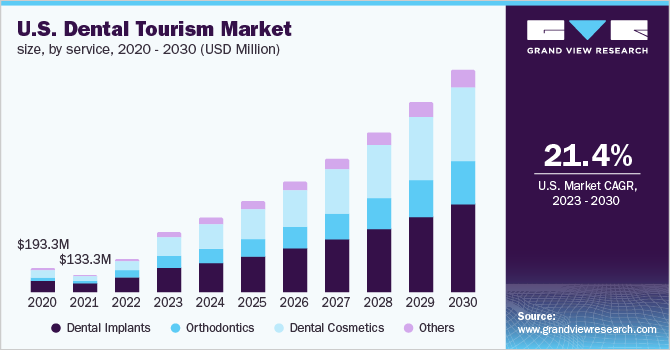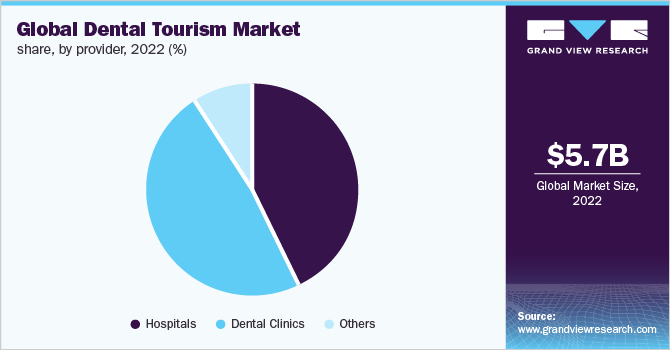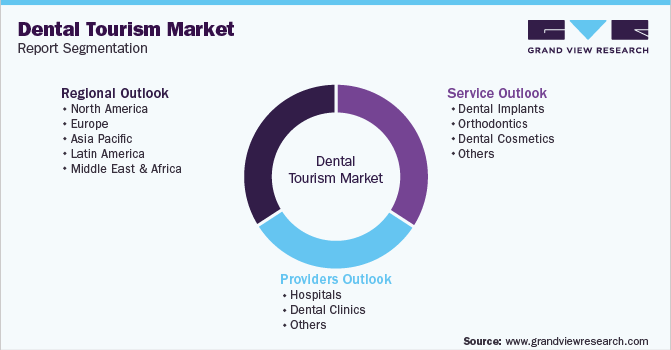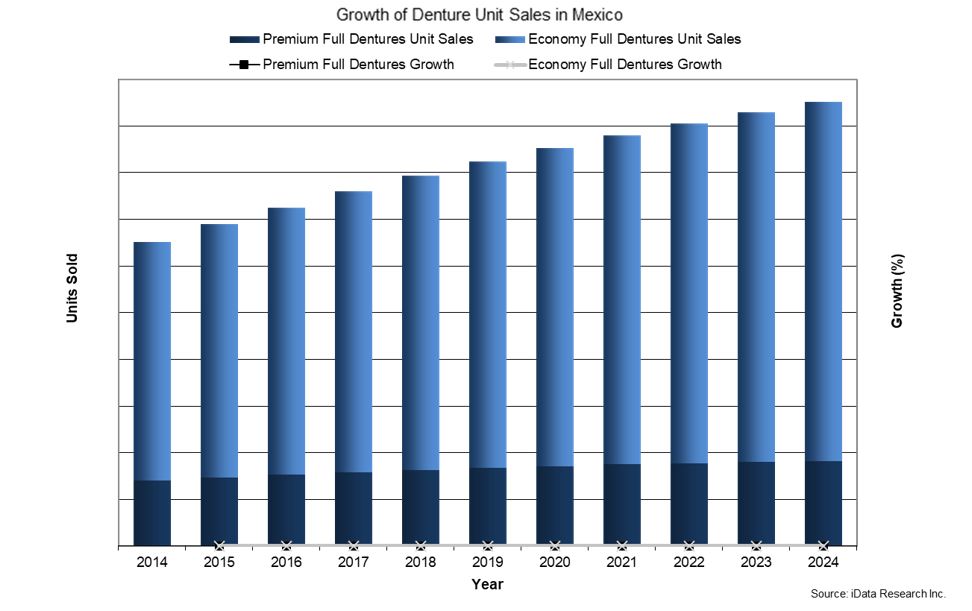Are you looking to combine a vacation with your dental needs? Dental tourism, the practice of traveling to another country for affordable dental treatment, has been steadily gaining popularity over the years. Not only does it offer a chance to explore new destinations and immerse yourself in different cultures, but it also has a significant impact on the local economies of the countries hosting these dental tourists. With a substantial influx of visitors seeking dental care, local businesses such as hotels, restaurants, and tour operators thrive, contributing to economic growth and employment opportunities. In this article, we explore the fascinating world of dental tourism and how it benefits local economies around the world.

Table of Contents
ToggleDefinition of Dental Tourism
What is dental tourism?
Dental tourism, also known as dental travel or dental vacation, is a form of medical tourism that involves individuals traveling to another country to receive dental care at a lower cost or access high-quality dental treatment that may not be available or affordable in their home country. This growing trend allows patients to combine dental procedures with leisure activities and explore different cultures.
Reasons why people choose dental tourism
There are several reasons why people choose dental tourism as a viable option for their dental needs. The primary motivation is cost savings. In many developed countries, dental treatments can be quite expensive, and insurance coverage may not fully cover the costs. By opting for dental tourism, patients can receive the same quality of treatment at a fraction of the cost.
Moreover, accessibility to high-quality dental care is another significant factor. Some individuals may live in areas where dental services are limited, or the waiting times for appointments are excessively long. Dental tourism enables patients to access state-of-the-art facilities and experienced dentists without extensive waiting periods.
Additionally, advanced dental procedures that may not be available or are prohibitively expensive in their home country can be easily obtained through dental tourism. From cosmetic dentistry like dental implants and veneers to complex dental surgeries, individuals can find a range of treatments that suit their specific needs at a competitive price.
Lastly, dental tourism offers the unique opportunity to combine dental care with travel and cultural experiences. Patients can explore new destinations, immerse themselves in different cultures, and enjoy a relaxing vacation while receiving dental treatment. This combination of healthcare and tourism appeals to individuals looking for a well-rounded experience.
Benefits of Dental Tourism
Cost savings for patients
One of the most significant advantages of dental tourism is the substantial cost savings for patients. Dental treatments in countries popular for dental tourism, such as Mexico, Hungary, Thailand, and India, can be significantly cheaper than in developed countries like the United States, Canada, or Australia. Patients can save up to 70% on various dental procedures, including fillings, crowns, root canals, and even more complex treatments like dental implants or orthodontic procedures.
Access to high-quality dental care
Contrary to some misconceptions, dental tourism does not mean sacrificing quality for a lower price. Many dental clinics in popular tourist destinations have state-of-the-art facilities, experienced dentists, and international accreditation. By choosing reputable dental clinics and conducting thorough research, individuals can access high-quality dental care that meets or exceeds the standards they would find in their home country.
Availability of advanced dental procedures
Dental tourism allows patients to access advanced dental procedures that may not be readily available or affordable in their home country. Countries like Hungary, renowned for their dental tourism industry, offer a wide range of specialized treatments such as complex oral surgeries, full mouth restorations, and advanced cosmetic dentistry. These treatments, which may be expensive or have long waiting lists in other countries, can be conveniently obtained through dental tourism.
Opportunity for travel and cultural experiences
One aspect that sets dental tourism apart is the opportunity for patients to indulge in travel and cultural experiences. Apart from receiving dental treatment, patients can explore new destinations, immerse themselves in different cultures, and relax in beautiful surroundings. This unique combination of healthcare and tourism helps individuals turn their dental visit into a memorable vacation. Whether it’s exploring ancient ruins, enjoying pristine beaches, or trying out local cuisine, dental tourism allows patients to create unforgettable memories alongside their dental journey.
Global Dental Tourism Market
Size and growth of the dental tourism industry
The dental tourism industry has seen remarkable growth in recent years. According to the Market Research Future (MRFR) report, the dental tourism market is projected to grow at a compound annual growth rate (CAGR) of 8.2% from 2019 to 2025. The increasing demand for affordable dental treatments, rising dental tourism marketing efforts, and improved transportation options have contributed to the expansion of this industry.
The size of the dental tourism market is significant, with countries like Mexico, Thailand, Hungary, Costa Rica, and India emerging as popular dental tourism destinations. Patients from all over the world, especially the Middle East, North America, and Western Europe, are seeking dental treatments in these countries due to cost savings and high-quality care.
Popular destinations for dental tourism
Several countries have established themselves as popular dental tourism destinations due to their competitive prices, access to quality care, and attractive tourist attractions. Mexico, with its proximity to the United States and affordable dental treatments, has become a top destination for American patients. Hungary, often referred to as the “dental capital of Europe,” attracts patients from all over the world with its renowned dental clinics and experienced dentists. Thailand, with its combination of affordable dental care, excellent hospitality, and exquisite tourist destinations, has seen a surge in dental tourists. Other countries like Costa Rica, India, Turkey, and Poland are also gaining popularity for their dental tourism offerings.
Factors driving the growth of dental tourism
Several factors are driving the growth of the dental tourism industry globally. The primary factor is the significant cost savings associated with dental treatments in dental tourism destinations. Patients can save a substantial amount of money even after considering travel expenses. This cost advantage, coupled with the availability of high-quality dental care, is a major motivator for patients to choose dental tourism.
Another driver is the increased awareness and accessibility of dental tourism. With advancements in technology and enhanced connectivity, individuals can easily research and explore dental tourism options. Online platforms, patient testimonials, and dental clinic reviews provide valuable information, helping patients make informed decisions.
Furthermore, the rise of dental insurance plans that include coverage for dental tourism has also contributed to its growth. Dental insurance coverage for treatments received abroad encourages patients to explore dental tourism as a viable option without compromising on quality or safety.
The convenience of travel and advancements in transportation have also played a significant role in boosting the dental tourism industry. Improved flight connections, affordable airfare, and simplified visa processes have made it easier for patients to plan dental trips abroad. Additionally, many dental clinics offer comprehensive travel packages, including airport transfers, accommodation, and local transportation, making the entire experience seamless for patients.
Impact on Local Economies
Job creation in the dental tourism sector
Dental tourism has a positive impact on the local economies of countries that host a significant number of dental tourists. It creates job opportunities for locals, ranging from dentists and dental hygienists to administrative staff and support personnel. Dental clinics catering to dental tourists often expand their workforce to meet the increasing demand for dental services. This job creation benefits not only the dental industry but also other sectors indirectly linked to tourism, such as hospitality, transportation, and retail.
Increased revenue for dental clinics and related businesses
The influx of dental tourists brings in substantial revenue for dental clinics and related businesses. Dental clinics specializing in dental tourism often experience a surge in patients, resulting in increased revenue and profitability. Moreover, dental tourism destinations witness a rise in occupancy rates for hotels, resorts, and other accommodations. Local restaurants, tour operators, and retail establishments also benefit from the increased footfall of dental tourists, contributing to the local economy.
Boost in tourism sector and local businesses
Dental tourism enhances the overall tourism sector and supports local businesses. When patients travel to another country for dental treatment, they typically stay for an extended period, allowing them to explore the local culture, attractions, and cuisine. This translates into increased tourism spending on accommodations, dining, shopping, and various tourist activities. Local businesses, such as tourist agencies, tour guides, restaurants, and souvenir shops, witness a boost in their revenue.
Infrastructure development and improvement
The growth of dental tourism often leads to infrastructure development and improvement in popular dental tourism destinations. To accommodate the increasing number of dental tourists, countries invest in upgrading their healthcare facilities, dental clinics, and transportation systems. Improved infrastructure benefits not only dental tourism but also the overall healthcare system and local communities.

Challenges Faced by Local Economies
Pressure on public healthcare system
One of the major challenges faced by local economies with a thriving dental tourism industry is the strain it puts on their public healthcare system. The surge in dental tourists seeking treatment can burden the already limited resources and infrastructure of the local healthcare system. Since dental tourism patients are typically non-residents, the local government may face challenges in ensuring adequate healthcare access for its own citizens.
Competitive pricing for local dental clinics
While dental tourism brings numerous economic benefits, it also presents challenges for local dental clinics that do not cater to dental tourists. The competitive pricing offered by dental tourism destinations can make it difficult for local clinics to compete. Local clinics may face pressure to lower their prices to attract patients, impacting their financial sustainability.
Ethical concerns regarding quality of care and regulation
Ethical concerns regarding the quality of care and regulation in dental tourism destinations can arise. Patients need to carefully research and select reputable dental clinics to ensure they receive safe and effective treatment. Additionally, varying dental regulations and standards across countries can pose ethical dilemmas. It is crucial for patients to be vigilant and choose accredited clinics that adhere to international standards to mitigate any potential risks.
Case Studies
Case study 1: The impact of dental tourism on the economy of Hungary
Hungary has emerged as one of the leading dental tourism destinations in Europe. With its highly skilled and experienced dentists, state-of-the-art clinics, and competitive prices, Hungary attracts a significant number of dental tourists every year. This influx of patients has had a profound impact on the country’s economy.
The dental tourism industry in Hungary has resulted in job creation, not only in the dental sector but also in related industries such as tourism, hospitality, and transportation. The increased revenue generated by dental clinics and related businesses has contributed to the overall economic growth of the country. Moreover, the development of infrastructure and improvements in healthcare facilities have further enhanced Hungary’s appeal as a dental tourism destination.
Case study 2: The effect of dental tourism on the economy of Thailand
Thailand has experienced substantial growth in dental tourism, driven by its affordability, high-quality dental care, and attractive tourist destinations. The impact on Thailand’s economy has been significant.
Dental tourism has created employment opportunities for locals in the dental industry as well as other sectors related to tourism. The revenue generated by dental tourists has led to the growth of dental clinics and related businesses, resulting in increased profitability and competitiveness. The influx of dental tourists also stimulates the tourism sector, benefiting various local businesses and contributing to the overall economic development of Thailand.

Government Policies and Regulation
Regulation of dental tourism industry
To ensure patient safety and quality of care, governments regulating the dental tourism industry often require dental clinics to meet specific standards and guidelines. This includes compliance with hygiene protocols, training and certification of dental professionals, and adherence to ethical practices. Regular inspections and audits are conducted to ensure compliance and maintain the reputation of dental tourism destinations.
Licensing and accreditation of dental clinics
Licensing and accreditation processes play a crucial role in maintaining quality standards in the dental tourism industry. Dental clinics are required to obtain licenses and certifications from relevant authorities to operate legally. Accreditation from international organizations such as the Joint Commission International (JCI) provides assurance to patients regarding the quality and safety of dental services offered.
Promotion of dental tourism by governments
Some governments actively promote dental tourism as a means of attracting international patients and boosting their economies. They collaborate with dental clinics and travel agencies to create marketing campaigns, participate in international dental tourism exhibitions, and offer incentives to patients such as tax rebates or medical tourism packages. Government support and promotion help create a favorable environment for the growth of the dental tourism industry.
Ethical Considerations
Ensuring patient safety and quality of care
Ethical considerations in dental tourism revolve around ensuring patient safety and the provision of high-quality care. Patients should research and select dental clinics that prioritize safety measures, use sterilized equipment, and adhere to internationally recognized standards. It is essential for dental tourism providers to prioritize patient welfare and maintain ethical practices throughout the treatment process.
Responsibility of dental tourism providers
Dental tourism providers have a responsibility to communicate transparently with patients, provide accurate information about treatment options and associated risks, and ensure proper informed consent. It is imperative that dental clinics and agencies adequately educate patients about the pros and cons of dental tourism, helping them make informed decisions about their dental care.
Addressing legal and ethical issues
Given the cross-border nature of dental tourism, legal and ethical issues may arise. Concerns related to medical malpractice, legal recourse, and patient rights need to be addressed by dental tourism stakeholders. Proper channels for dispute resolution, clear legal frameworks, and effective communication between patients and providers are essential in maintaining a trustworthy environment.

Future Trends and Opportunities
Emerging dental tourism markets
While traditional dental tourism destinations like Mexico, Hungary, and Thailand continue to thrive, emerging markets are gaining traction. Countries such as Colombia, Brazil, Malaysia, and South Korea have seen a rise in the number of dental tourists due to their competitive prices, excellent healthcare facilities, and attractive tourist destinations. These emerging dental tourism markets present new opportunities for patients seeking affordable dental care and offer the potential for economic growth in these countries.
Integration of technology in dental tourism
Technology is playing an increasingly significant role in dental tourism. Virtual consultations, tele-dentistry, and digital treatment planning have made it easier for patients to connect with dental clinics abroad, inquire about their treatment options, and receive expert advice. The use of advanced dental technologies like CAD/CAM systems, 3D printing, and digital imaging further enhances treatment outcomes. The integration of technology in dental tourism improves patient experience, ensures accurate diagnoses, and enhances treatment efficiency.
Collaboration between travel agencies and dental clinics
Collaboration between travel agencies and dental clinics is becoming more common in the dental tourism industry. Travel agencies specializing in medical tourism create comprehensive dental tourism packages, combining travel and accommodation arrangements with dental treatment. This collaboration streamlines the entire process for patients, providing a one-stop solution for their dental and travel needs.
Conclusion
Summary of the impact of dental tourism on local economies
Dental tourism has a significant impact on local economies, providing job opportunities, increasing revenue for dental clinics and related businesses, boosting the tourism sector, and facilitating infrastructure development. The growth of the dental tourism industry has led to an improved healthcare infrastructure, enhanced accessibility to dental treatments, and economic prosperity in dental tourism destinations.
Considerations for governments and stakeholders
Governments and stakeholders need to prioritize patient safety and quality of care in the dental tourism industry. Implementing regulations, licensing, and accreditation processes ensures that dental clinics meet international standards. Promotion and support from governments encourage the growth of the dental tourism industry, benefiting both patients and the local economy.
Future prospects and challenges
The future of dental tourism looks promising, with emerging markets, technological advancements, and collaborations between travel agencies and dental clinics providing opportunities for growth. However, challenges related to public healthcare system strain, competition for local dental clinics, and ethical concerns regarding regulation and quality of care must be addressed to ensure sustained success and the welfare of dental tourism patients.



